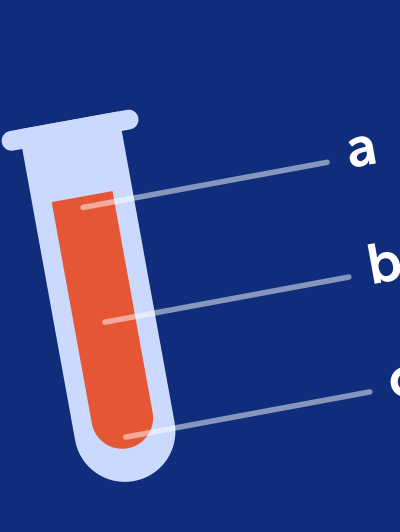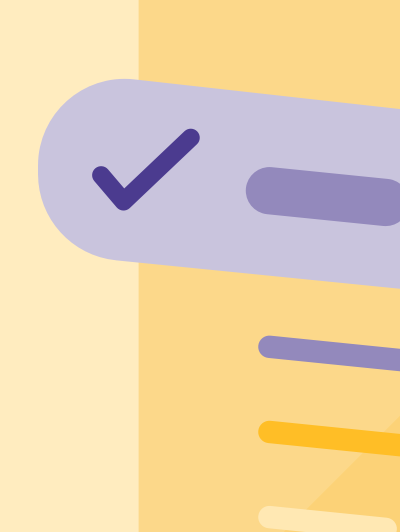
The Daily NCLEX® Challenge is the easiest way to ace your NCLEX exam the first time! Join today, and access 7 days of Premium for free.
Sign up now to receive your first challenge →
As a student nurse who is getting ready to graduate nursing school and make their mark on the world, there’s one more challenge to face – taking the NCLEX. The NCLEX is the nursing licensure exam administered by each state. It’s designed to test your nursing practice, and even trick you. The board of nursing wants to know that you’re adequately prepared to provide competent care to those who are in vulnerable positions.
The NCLEX is a difficult exam, and will serve you from a minimum of 75 questions up to a maximum of 265 questions. Why does the number of test items vary? The exam is administered by a computer which adjusts the number of questions and the difficulty of the test items to determine whether or not your performance meets a certain standard. If after answering only 75 questions your performance is adequate to prove that you’re competent, the test will shut off. The same works for poor performance. Receiving only 75 test questions does not necessarily ensure a passing score.
Many who take the NCLEX receive more questions than 75. If you do too, don’t worry. It may be a longer day, but you still have a good chance of passing the exam. There are several things you can do to boost your chances of passing the NCLEX exam after only 75 questions.
Anyone who has ever taken an exam longer than 75 questions will tell you that it’s exhausting. Your mind becomes fatigued after thinking critically and analytically for so long. This is why it’s especially important to perform your best on the first 75 questions. As the test progresses, you’ll become more fatigued, and this affects your performance.
Because the NCLEX doesn’t have a fixed number of questions and adapts to how you perform, it’s critical to start out strong. Be sure that when you arrive to the testing station that you’ve had a good night’s sleep, a good meal beforehand, and that you haven’t been trying to cram last-minute right before the test. Don’t show up to take the NCLEX when you’re already fatigued and tired. If your performance for the first 75 questions is strong enough to prove that you meet the standards, the test will stop after you answer the 75th question.
Most people will have several options of testing location, test day, and test time when registering to take the NCLEX. Everyone has times of the day during which they function better than at other times. When registering for your test date and time, be sure to choose a testing time that works for you. Everyone is nervous to take the exam, and you may want to get the test over with early in the day, but if you’re not normally a morning person your performance may suffer. Testing slots can also become booked quickly during times when there are lots of students graduating. Even if getting a time slot that works for you means that you’ll need to wait a few more days to test, take it. Being able to mentally function at your prime is worth the wait.
Study regularly is something that you’ve heard nonstop since beginning nursing school. Cramming is not very effective, and is an inefficient way to spend your study time. It’s better to spend smaller amounts of time studying more frequently as opposed to trying to stuff all the information you’ve learned in nursing school back into your brain in one week or less. For example, spend two hours per day studying for three days as opposed to six hours in one day. You’re just not going to retain as much information when cramming. And if you’re cramming the night before or the day of the NCLEX, you might exhaust your mind. It’s easier said than done, but don’t study much the day before you take the exam. Even if you’re down to one week before test time, that’s still plenty of time to spend time studying every day.
While it’s important to choose a test date that works for you, it’s also important to test soon after graduation. Sometimes nursing school graduates want to wait a bit to take the NCLEX due to nerves or feeling unprepared, but it’s still better to test soon. You’re not going to classes anymore, and not listening to lectures. It’s easy for your knowledge levels to start slipping if you’re not careful. If you feel prepared and perform well on practice NCLEX tests, you may want to take the test as soon as you can. Many graduates take up to a month after graduation to test so that they can focus on studying. If this is you, make sure you’re studying nearly every day. Waiting several weeks or months to test can affect your performance.
Become comfortable with select-all-that-apply (SATA) questions – really comfortable. Many NCLEX takers report that around half of the questions they received were SATA. The tricky bit about SATA questions is that it’s almost as if they’re four or more questions in one question. You must decide whether each option applies. If you choose one wrong option, you fail the question. You’ll miss a lot of these questions as most people do. However, there are a few tricks to preparing for these questions. Becoming more comfortable with SATA will give your performance a boost, and help with anxiety (there are lots of SATA questions).
SATA questions are almost like a set of true-or-false questions. It may help you during the test to think of it this way. You have a 50% chance of selecting the correct answer for each item in the question. These questions are also very straightforward and don’t try to trick you like other exam items. Read over each answer option, and re-read the test question to see how that individual option fits. Lather, rinse, repeat. Continue this process for all options. If you’re questioning answers you felt certain about but now aren’t sure if it’s a trick question, remember that it’s not.
Passing the NCLEX in only 75 questions is what many graduates aim for. It’s a great feeling when the test clicks off after that last stomach-turning question. While it doesn’t necessarily mean that you passed, you’d have to perform quite poorly for the test to quit after 75 items. Passing with the minimum number of questions means that you won’t become as exhausted as the test continues, possibly up to 265 questions. With a bit of extra preparation, you can increase your chances of being able to pass in 75 questions. While it’s not the only way to pass the NCLEX, it’s certainly a bit of an ego boost!
If you are still in nursing school, use these strategies and tips on your nursing exams.
Continue reading

There are always a few more things you can squeeze in last minute to boost your chances of passing.
Continue reading
